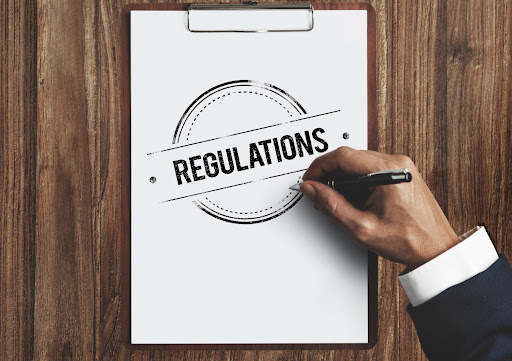
Free Photo | Regulations Conditions Rules Standard Terms Concept
In the country, gambling advertising has become a complex and highly regulated sector, that includes various gambling platforms from the betting shop on the corner to the mobile casino app. As gambling continues to grow in popularity, regulators face the challenge of balancing economic interests with social responsibility.
Anyone providing gambling services is expected to adhere to the gambling advertising regulations. Techopedia’s Kane Pepi explains that while the UK imposes restrictions on gambling limits, self-exclusion, and more, offshore casinos are not privy to the same regulations and provide players with a wider range of gaming options, payment gateways, and exclusive bonuses. However, since November 2014, all remote gambling operators, including non-Gamstop casinos operating outside of the UK’s borders must comply with the UK Gambling Commission’s Licence Conditions and Codes of Practice.
Regulatory Framework
The country’s regulations for gambling advertising are mainly managed by two key bodies, the Committees of Advertising Practice (CAP) and the Advertising Standards Authority (ASA). These two entities frequently collaborate to create and enforce the UK Advertising Codes that govern advertising in both broadcast and non-broadcast mediums.
The Gambling Commission serves as the body for commercial gambling and holds significant importance in overseeing the industry’s operations within the country’s legal framework. It requires licensed operators to comply with the UK Advertising Codes as a key requirement for their licenses, adding an additional layer of enforcement to the existing regulatory framework.
Key Guidelines for Regulating Gambling Advertisements
The core principles of the regulations for gambling advertisements revolve around safeguarding consumers:
To ensure the ads are age-appropriate, they should not target individuals or showcase anyone who appears to be under 25 engaging in gambling or having a central role in the advertisement.
Responsible communication includes avoiding the portrayal of gambling as a remedy or as a pathway to social or personal achievement.
Honest portrayal is essential as ads should not take advantage of the vulnerabilities or limited understanding of susceptible individuals.
Age-restricted advertisements should not be displayed in media where individuals, under the age of 25 make up over a quarter of the audience.
Recent Changes and Strengthened Protections
In October 2022, the country implemented changes to its regulations on gambling advertisements, imposing much stricter limitations to safeguard individuals under the age of 18. The updated criteria have replaced the specific appeal evaluation method with a new approach.
According to the revised guidelines content that strongly attracts individuals under the age of 18 is now forbidden, regardless of its reception among adults. This change has significantly influenced the use of athletes, and social media personalities in gambling promotions.
Restrictions on Celebrity Endorsements
The introduction of the “strong appeal test” has significantly restricted the use of public figures such as high-profile soccer players for example, who are popular with a younger demographic. Additionally, reality television stars and social media influencers who have younger followers are also subject to these limitations.
Socially Responsible Advertising
Apart from regulations set by the government authorities, the gambling sector has also begun to regulate itself. The voluntary code sets out guidelines for gambling operators to adhere to. These regulations are in addition to the official regulations and highlight the industry’s dedication to promoting responsible advertising practices.
Premier League Shirt Sponsorship Deal
Premier League teams have made a decision to remove betting sponsors from the front of their jerseys at the end of the 2025-2026 season. This decision is part of growing concerns regarding the prevalence of gambling promotions in sports.
Enforcement and Compliance
The UK’s regulatory bodies have robust mechanisms in place to ensure compliance with advertising regulations:
The ASA investigates complaints about gambling advertisements and can require ads to be amended or withdrawn if they breach the codes.
Serious or repeated breaches may be referred to the Gambling Commission or Ofcom for further action, potentially resulting in fines or license reviews.
The Gambling Commission conducts its own monitoring and can take action against licensed operators who fail to comply with advertising regulations.
Online Advertising and Targeting
As digital advertising continues to grow, regulators have placed increased emphasis on ensuring responsible practices in online gambling advertising:
Age verification: Online advertisers are expected to use a combination of targeting tools to ensure ads are served to an adult audience.
Social media guidelines: The ASA has issued specific guidance for gambling operators advertising on social media platforms, addressing issues such as influencer marketing and age-gating content.
Data-driven targeting: Advertisers are encouraged to use available data and technology to target ads more accurately and avoid exposure to underage audiences.
Regulations for Gambling Affiliates
Affiliates promoting gambling products in the country are subjected to the same advertising regulations and standards as licensed operators. While the main responsibility for compliance often falls on the gambling operators, they are expected to ensure affiliates market their products responsibly. This includes following the Gambling Act 2005, the Licence Conditions and Codes of Practice, and industry codes for socially responsible advertising.